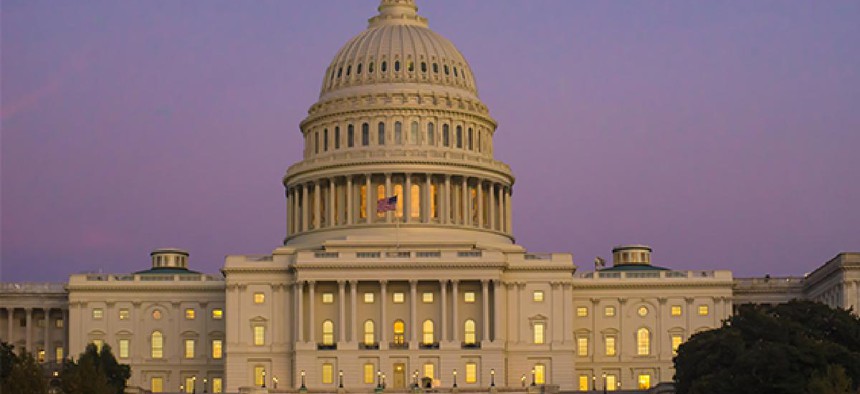New York nonprofit leaders blast passage of GOP tax plan

Shutterstock
The sweeping changes to the federal tax code that just passed in Congress included several provisions that will likely hurt the bottom line for nonprofits. But New York nonprofit leaders say that Republican plans to slash entitlements in the upcoming year – in order to cut the federal deficit, which the tax plan will increase – worries them as much as what President Donald Trump will sign into law.
“Ugh, I'm so disgusted,” Allison Sesso, executive director of the Human Services Council, said in a telephone interview. "This is going to be a big problem for New York overall and it’s going to be a problem for human services. … There's a lot funding that the city agencies rely on, so that's going to be a problem.”
Nonprofits will likely face less charitable giving in upcoming years because of the increase to the standard income deduction, which will likely discourage people from itemizing deductions. The repeal of the individual mandate will disrupt healthcare markets, and changes to property, sales and income tax deductions will increase the tax costs of owning property in states like New York.
All of these issues will affect nonprofits’ bottom line, mission and the people they serve, added Sesso. But she did express relief that the final bill does not include a repeal of the Johnson Amendment, which restricts political activity by nonprofit groups. The fact that nonprofits across the country rallied against the proposed repeal offers hope that the sector can shake off setbacks and confront any future attempts to cut federal spending on Medicare, Social Security and other social services.
The Trump administration has already proposed deep cuts in federal spending on social services like SNAP, which could in turn put local and state government under pressure to either fund the shortfall through tax increases or see the social safety net fray and poverty increase.
Federal dollars appear throughout New York City and state programs, which will see massive cuts in the upcoming year, James Parrott, director of economic and fiscal policies at The New School’s Center for New York City Affairs, in a Dec. 14 op-ed in NYN Media.
One-third of the state budget is federally funded, mostly for Medicaid. The New York City Housing Authority receives two-thirds of its budget from the federal government, just one of a number of city departments which could face growing budget shortfalls in 2018 — all a part of a generational shift in how different levels of government collaboratively approach social problems, according to Parrott.

“The decades-old federal-state fiscal partnership appears more precarious than ever,” he wrote.
While some nonprofit leaders have said the tax bill targets the nonprofit sector, others speculate whether upcoming challenges are just collateral damage in a GOP quest to benefit corporations and the wealthy.
“We are incredibly disappointed that Congress or at least the GOP members of Congress did not take into consideration the nonprofit sector, the impact the tax reform would have on charitable giving and – possibly more important – the impact it will have on the communities it will serve,” Sharon Stapel, executive director of the Nonprofit Coordinating Committee of New York, said in an interview.
She added that another danger looms in 2018 besides the expected cuts in federal support for social services. Just as Republicans have tried and tried again to change the tax code, repeal of the Johnson Amendment could re-emerge as a priority for Republicans who want to allow charities and nonprofits to open their wallets to political donations, she said.
“This is not the end of the fight to maintain the protections of the Johnson Amendment," Stapel said. “There will be another time."
NEXT STORY: The army of federal leaders from New York
